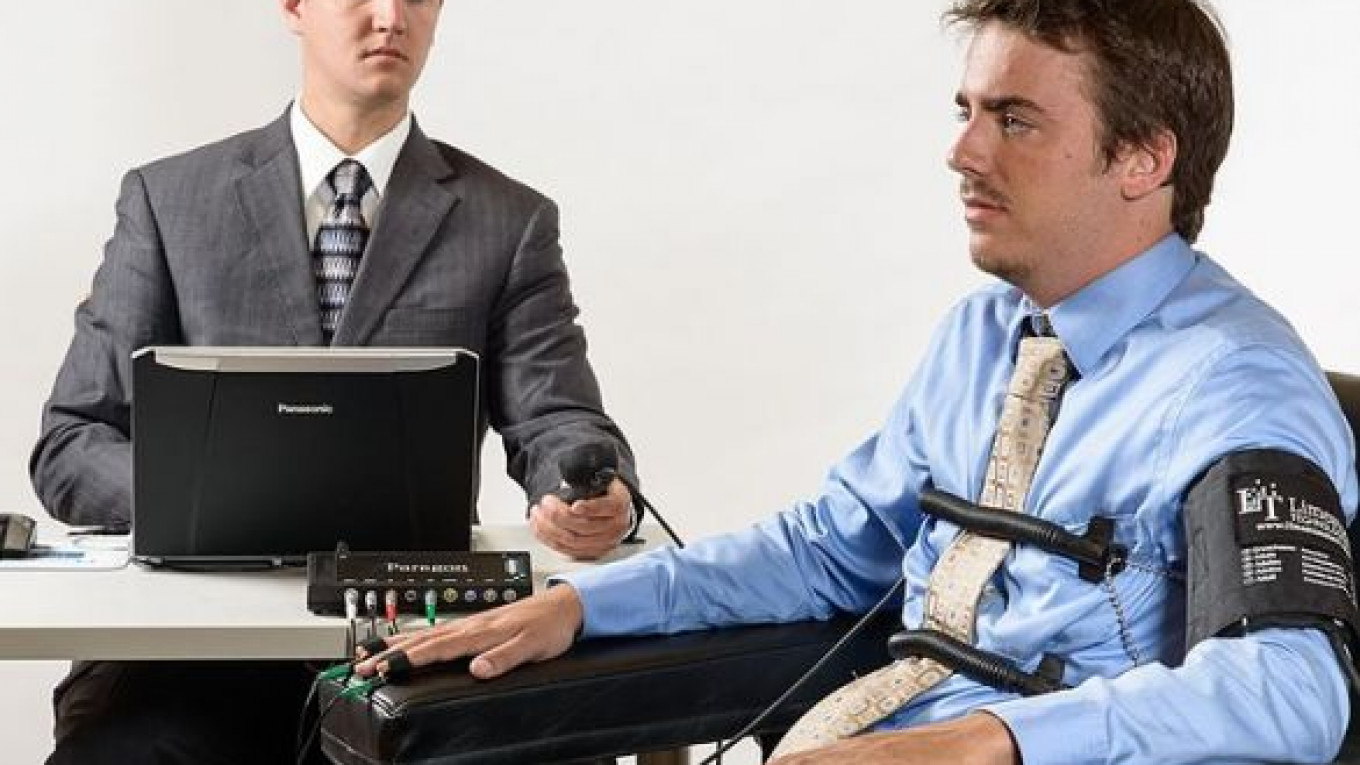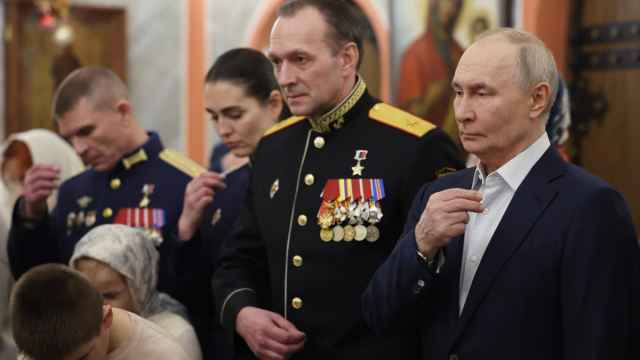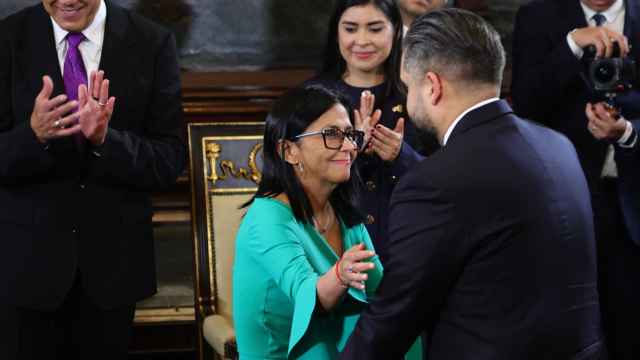Mandatory polygraph testing for current and prospective state officials will be discussed at the meeting of the presidential anti-corruption council in June, a news report said Monday.
The initiative to introduce lie detector testing is currently at the planning stage, but if the proposal is accepted it will be added to anti-corruption legislation, a source in the presidential administration told Izvestia.
Anatoly Kucherena, a member of the presidential anti-corruption council, said the initiative comes from the Kremlin as well as council members.
Ilya Kostunov of the State Duma committee on security and counteracting corruption said the body is considering various anti-corruption measures and is working to make them part of the legislation.
He said the proposal to use lie detectors for testing officials "one of the most interesting ideas."
Kostunov added that mandatory polygraph testing of its employees is currently standard practice at the Federal Security Service and other law enforcement and security agencies, although it is not mandatory for other officials.
Psychological testing for government officials, especially those related to budgetary issues, is also being proposed.
"It is important to find out what a person's attitude to state property is, because he will make his decisions accordingly," Kostunov said.
Meanwhile, Grigory Golosov, a professor at the European University in St. Petersburg called the new measures "archaic" and said that real political competition and a working electoral system are the most efficient ways of fighting corruption among state officials.
"Polygraph testing is not a useless measure, but a very weak one," Golosov said.
Related articles:
A Message from The Moscow Times:
Dear readers,
We are facing unprecedented challenges. Russia's Prosecutor General's Office has designated The Moscow Times as an "undesirable" organization, criminalizing our work and putting our staff at risk of prosecution. This follows our earlier unjust labeling as a "foreign agent."
These actions are direct attempts to silence independent journalism in Russia. The authorities claim our work "discredits the decisions of the Russian leadership." We see things differently: we strive to provide accurate, unbiased reporting on Russia.
We, the journalists of The Moscow Times, refuse to be silenced. But to continue our work, we need your help.
Your support, no matter how small, makes a world of difference. If you can, please support us monthly starting from just $2. It's quick to set up, and every contribution makes a significant impact.
By supporting The Moscow Times, you're defending open, independent journalism in the face of repression. Thank you for standing with us.
Remind me later.






